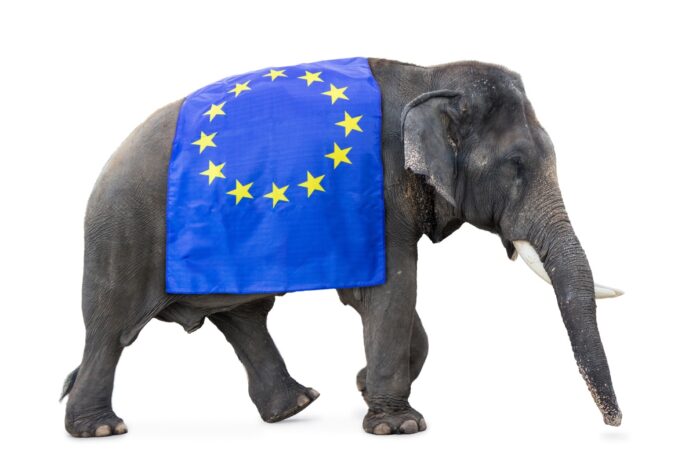Innovaters blocked by legislators says report from European Telecoms Network Operators
Dithering EU policymakers are a keeping a handbrake on the european telecoms sector while our agile Asian and American competitors disappear into the distance, according to a report by telecoms lobbying group ETNO (the European Telecommunications Network Operators’ association). Commenting on the report, Reuters says that the 27-country European Union needs 5G to lift it out of a COVID-19 pandemic-induced recession and take the lead in internet-connected devices. Despite investing €52.2 billion ($58.8 billion) in fibre infrastructure and 5G in 2020, European Telecoms still lags behind its global peers, research firm Analysys Mason (AM) has said.
Europe too Capex cautious
Europe spends €96.3 per head on telco capital expenditure, while the US and South Korea both spend at least double that, outlaying €191.9 euros/head and €115.4/head respectively, according to the AM study. “The increase of telecom investment and the resilience of the sector are desirable from a societal viewpoint and they are key to Europe’s Open Strategic Autonomy plans,” the study says, concluding that: “the sustainability of the sector should encourage strong policy action to dramatically improve the investment climate.”
Can’t ETNO satisfaction
ETNO, whose members include Deutsche Telekom, Orange, Telefonica and Telecom Italia, blames the EU’s cumbersome rules and inadequate government support. “Despite the highest investment in years, Europe has not filled its global digital gap yet. Our sector still suffers from highly regulated revenues,” said Lise Fuhr, ETNO’s director general. “We need strong policy support for faster network roll-out and for more consolidation.” ETNO members wants more license for market consolidation in each country. A longer term objective is to monetise the data traffic on their networks, instead of watching Google, Facebook and Microsoft cash in on the content of the network pipelines.
Big Tech hat, no cattle
According to Sandvine’s Global Internet Phenomenon report, Google, Facebook, Microsoft, Apple, Amazon and Netflix generate about 57 of Internet traffic – more than everyone else combined. This is challenging Europe’s mobile operators to understand where the traffic originates and manage network capacity from an increasing diversity of traffic sources, said Gabriel Brown, Principal Analyst of Mobile Networks and 5G at Heavy Reading.
In November the CEOs of 13 major European mobile operators co-signed a letter arguing that US tech giants should pay towards the European networks that ‘they use so freely and exploit so profitably’.



